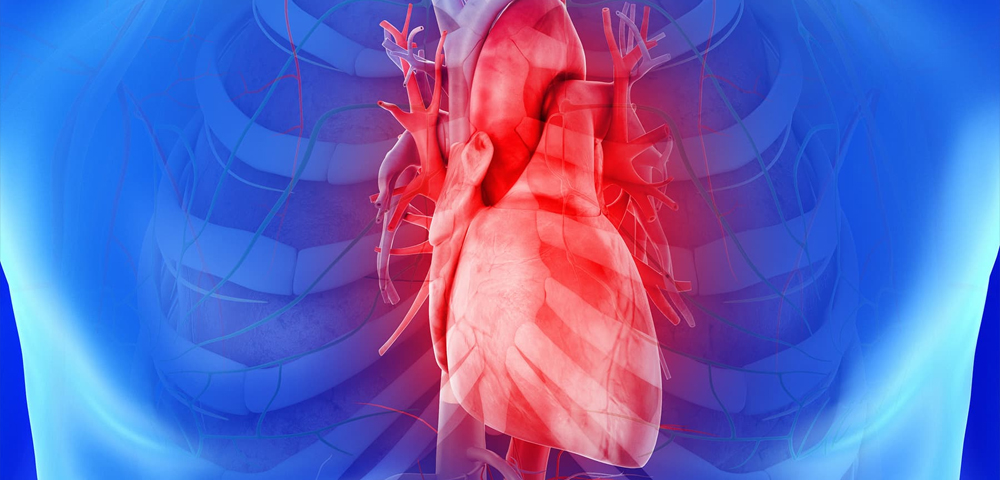
What is Cardiomyopathy?
Cardiomyopathy refers to diseases of the heart muscle that cause the heart to become enlarged, thickened, or stiff, making it harder to pump blood. This condition can lead to heart failure, arrhythmias, and, in severe cases, sudden cardiac arrest. There are several types of cardiomyopathy, each with different causes, symptoms, and treatment approaches. It is a progressive condition that can develop over time and may not show symptoms in its early stages. Dr. Akshay Kashid, an experienced Cardiologist specialist in Pune, specializes in heart care and provides expert diagnosis and treatment for cardiomyopathy.
Types of cardiomyopathy
Dilated Cardiomyopathy: The most common one where the heart’s chambers enlarge and heart muscles become weak. It means it has reduced the heart to pump blood, leading it to failure.
Hypertrophic Cardiomyopathy: In this condition, the heart muscle becomes abnormally thick, often affecting the ventricles. This obstructs blood flow, leading to arrhythmias or even sudden cardiac death.
Restrictive Cardiomyopathy: The heart muscle is stiff and less able to expand and contract properly. Thus, the heart is less able to fill with blood, causing fluid buildup and heart failure.
Arrhythmogenic Right Ventricular Cardiomyopathy: A condition in which the muscle of the right ventricle is replaced with fatty or fibrous tissue, thereby causing arrhythmias and an increased risk of heart failure.
Causes of Cardiomyopathy
Cardiomyopathy can be caused by a variety of factors, and in many cases, more than one factor may be involved. Some common causes include:
Genetics: Most cardiomyopathy cases are inherited. They run in families. Hypertrophic cardiomyopathy, for instance, is usually passed down from family lines.
Heart Attack: The heart muscle is damaged from a previous heart attack. This can cause the heart to become weak and dilated cardiomyopathy.
Chronic High Blood Pressure: Prolonged high blood pressure puts stress on the heart muscle. The heart muscle thickens or enlarges over time.
Alcohol Abuse: Chronic excessive alcohol use can weaken the heart muscle, resulting in dilated cardiomyopathy.
Infections: Viral infections can cause myocarditis (inflammation of the heart muscle), which may lead to cardiomyopathy.
Chronic Medical Conditions: Diabetes, thyroid disease, and obesity are associated with an increased risk of cardiomyopathy.
Cardiomyopathy Symptoms
Symptoms will vary widely based on the specific type of cardiomyopathy and its severity. Some general symptoms include:
Fatigue: Feeling extremely tired or weak even with minimal physical activity.
Shortness of Breath: Difficulty breathing, especially during physical activity or when lying down.
Swelling: Fluid retention in the ankles, legs, or abdomen.
Dizziness or Fainting: Lightheadedness, particularly during physical activity.
Chest Pain or Discomfort: This may be due to an increased strain on the heart or arrhythmias.
Irregular Heartbeats: Palpitations or a fluttering sensation in the chest.
Cardiomyopathy Treatment by Dr. Akshay
Dr. Akshay specializes in the comprehensive treatment of cardiomyopathy, a condition affecting the heart’s ability to pump blood effectively. His approach includes:
- Personalized Medication: Using medications like ACE inhibitors, beta-blockers, and diuretics, Dr. Akshay helps manage symptoms and improves heart function.
- Advanced Devices: For patients with severe arrhythmias, Dr. Akshay may recommend pacemakers or Implantable Cardioverter Defibrillators (ICDs) to monitor and regulate heart rhythms.
- Lifestyle Adjustments: Emphasis is placed on diet, exercise, and weight management to reduce the burden on the heart and improve overall health.
- Surgical Interventions: In severe cases, procedures like septal myectomy or heart transplant may be necessary for long-term survival.
- Ongoing Care: Regular monitoring and follow-up ensure effective management and prevent complications.
What Dr. Akshay offer for Cardiomyopathy treatment?
- Medication: A Cardiologist specialist prescribes medications such as beta-blockers, ACE inhibitors, diuretics, and aldosterone antagonists to reduce the heart’s workload and control symptoms like fluid retention.
- Lifestyle Modifications: Emphasizing a heart-healthy diet, weight management, and regular physical activity, a Cardiologist works with patients to ensure lifestyle changes support long-term heart health.
- Regular Monitoring: Regular check-ups, including diagnostic tests like echocardiograms and ECGs, are essential for monitoring heart function and adjusting treatment plans as needed.
- Managing Underlying Conditions: If cardiomyopathy is caused by conditions like high blood pressure or diabetes, treatment is provided to manage these effectively, preventing further damage to the heart.
- Patient Education: Educating patients on managing symptoms, following prescribed treatments, and adopting healthier habits is key to preventing disease progression and improving quality of life.
Dr. Akshay Kashid, an experienced Cardiologist in Pune, offers expert heart care for cardiomyopathy treatment, ensuring the most effective approach for each patient’s needs.
Why Choose Dr. Akshay Kashid for Cardiomyopathy Treatment?
Dr. Akshay Kashid, an experienced ,Cardiologist specialist in Pune offers expert care for cardiomyopathy with a patient-centered approach to diagnosis and treatment. His extensive experience in cardiology, along with access to the latest diagnostic technologies and treatment options, ensures patients receive the highest level of heart care. Some reasons why patients choose Dr. Akshay include:
- Advanced Diagnostic Tools: Cardiomyopathy can be challenging to diagnose early, but with advanced tools like echocardiograms, MRIs, and genetic testing, Dr. Akshay ensures a proper diagnosis and initiates early treatment.
- Comprehensive Treatment: Managing cardiomyopathy requires a combination of lifestyle changes, medications, and medical devices. Dr. Akshay provides a personalized, holistic approach to achieve the best outcomes.
- Expert Monitoring and Follow-Up: Cardiomyopathy often requires long-term monitoring. As a skilled Cardiologist, Dr. Akshay ensures continuous evaluation and adjusts treatment plans to effectively manage the condition.
- Access to Specialized Treatments: With access to the latest treatments, including ICDs, pacemakers, and advanced heart surgery techniques, Dr. Akshay offers the most effective care tailored to each patient’s needs.
FAQs
Diagnosis involves physical exams, ECG, echocardiogram, and sometimes heart biopsies or MRIs.
Treatments include medications (beta-blockers, ACE inhibitors), lifestyle changes, and in some cases, surgery or heart transplants.
Prevention involves managing risk factors like high blood pressure, diabetes, and avoiding alcohol or drugs that can damage the heart.
There is no cure, but the condition can often be managed with medication and lifestyle adjustments.
It can cause fatigue, breathing problems, and difficulty with physical exertion.
The prognosis varies depending on the type and severity of cardiomyopathy, but with proper treatment, many people can lead active lives.
Exercise may be helpful, but it should be done under medical supervision and after an assessment by a doctor.
Yes, if you’re in Balewadi, you can consult Dr. Akshay Kashid for advanced cardiomyopathy care, including medication, monitoring, and lifestyle management.
